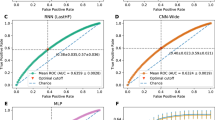Abstract
The development of virtual care options, including virtual hospital platforms, is rapidly changing the healthcare, mostly in the pandemic period, due to difficulties in in-person consultations. For this purpose, in 2020, a neurological Virtual Hospital (NOVHO) pilot study has been implemented, in order to experiment a multidisciplinary second opinion evaluation system for neurological diseases. Cerebrovascular diseases represent a preponderant part of neurological disorders. However, more than 30% of strokes remain of undetermined source, and rare CVD (rCVD) are often misdiagnosed. The lack of data on phenotype and clinical course of rCVD patients makes the diagnosis and the development of therapies challenging. Since the diagnosis and care of rCVDs require adequate expertise and instrumental tools, their management is mostly allocated to a few experienced hospitals, making difficult equity in access to care. Therefore, strategies for virtual consultations are increasingly applied with some advantage for patient management also in peripheral areas. Moreover, health data are becoming increasingly complex and require new technologies to be managed. The use of Artificial Intelligence is beginning to be applied to the healthcare system and together with the Internet of Things will enable the creation of virtual models with predictive abilities, bringing healthcare one step closer to personalized medicine. Herein, we will report on the preliminary results of the NOVHO project and present the methodology of a new project aimed at developing an innovative multidisciplinary and multicentre virtual care model, specific for rCVD (NOVHO-rCVD), which combines the virtual hospital approach and the deep-learning machine system.




Similar content being viewed by others
References
Bersano A, Kraemer M, Burlina A, Mancuso M, Finsterer J, Sacco S, Salvarani C, Caputi L, Chabriat H, Oberstein SL, Federico A, Lasserve ET, Hunt D, Dichgans M, Arnold M, Debette S, Markus HS (2021) Heritable and non-heritable uncommon causes of stroke. J Neurol 268(8):2780–2807. https://doi.org/10.1007/s00415-020-09836-x
Schwamm LH, Estrada J, Erskine A, Licurse A (2020) Virtual care: new models of caring for our patients and workforce. Lancet Digit Health 2(6):e282–e285. https://doi.org/10.1016/S2589-7500(20)30104-7
Lewis G, Vaithianathan R, Wright L, Brice MR, Lovell P, Rankin S, Bardsley M (2013) Integrating care for high-risk patients in England using the virtual ward model: lessons in the process of care integration from three case sites. Int J Integr Care 13:e046. https://doi.org/10.5334/ijic.1150
Rajpurkar P, Chen E, Banerjee O, Topol EJ (2022) AI in health and medicine. Nat Med 28(1):31–38. https://doi.org/10.1038/s41591-021-01614-0
LeCun Y, Bengio Y, Hinton G (2015) Deep learning. Nature. 521(7553):436–444. https://doi.org/10.1038/nature14539
Venkatesh KP, Raza MM, Kvedar JC (2022) Health digital twins as tools for precision medicine: considerations for computation, implementation, and regulation. NPJ Digit Med 5(1):150. https://doi.org/10.1038/s41746-022-00694-7
Pareyson D, Pantaleoni C, Eleopra R, De Filippis G, Moroni I, Freri E, Zibordi F, Bulgheroni S, Pagliano E, Sarti D, Silvani A, Grazzi L, Tiraboschi P, Didato G, Anghileri E, Bersano A, Valentini L, Piacentini S, Muscio C et al (2021) Neuro-telehealth for fragile patients in a tertiary referral neurological institute during the COVID-19 pandemic in Milan, Lombardy. Neurol Sci 42(7):2637–2644. https://doi.org/10.1007/s10072-021-05252-9
Bersano A, Khan N, Fuentes B, Acerbi F, Canavero I, Tournier-Lasserve E, Vajcoczy P, Zedde ML, Hussain S, Lémeret S, Kraemer M, Herve D (2023) European Stroke Organisation (ESO) Guidelines on Moyamoya angiopathy Endorsed by Vascular European Reference Network (VASCERN). Eur Stroke J 8(1):55–84. https://doi.org/10.1177/23969873221144089
Mancuso M, Arnold M, Bersano A, Burlina A, Chabriat H, Debette S, Enzinger C, Federico A, Filla A, Finsterer J, Hunt D, Lesnik Oberstein S, Tournier-Lasserve E, Markus HS (2020) Monogenic cerebral small-vessel diseases: diagnosis and therapy. Consensus recommendations of the European Academy of Neurology. Eur J Neurol 27(6):909–927. https://doi.org/10.1111/ene.14183
Acknowledgements
Figure 4 was created with http://biorender.com.
Author information
Authors and Affiliations
Consortia
Corresponding author
Ethics declarations
Conflict of interest
The authors declare no competing interests.
Informed consent
Informed consent was obtained from all individual participants included in the study.
Ethical approval
The study design will be submitted to the Ethical Committee of the FINCB and of each participating centres for approval. The study will be performed in accordance with the World Medical Association Declaration of Helsinki. Informed written consent for study participation (for data and biological samples collection) from all patients or their legal representatives will be mandatory for study inclusion.
Additional information
Publisher’s Note
Springer Nature remains neutral with regard to jurisdictional claims in published maps and institutional affiliations.
Supplementary information
ESM 1
(DOCX 12 kb)
Rights and permissions
Springer Nature or its licensor (e.g. a society or other partner) holds exclusive rights to this article under a publishing agreement with the author(s) or other rightsholder(s); author self-archiving of the accepted manuscript version of this article is solely governed by the terms of such publishing agreement and applicable law.
About this article
Cite this article
Rifino, N., Bersano, A., Padovani, A. et al. Virtual hospital and artificial intelligence: a first step towards the application of an innovative health system for the care of rare cerebrovascular diseases. Neurol Sci 45, 2087–2095 (2024). https://doi.org/10.1007/s10072-023-07206-9
Received:
Accepted:
Published:
Issue Date:
DOI: https://doi.org/10.1007/s10072-023-07206-9




